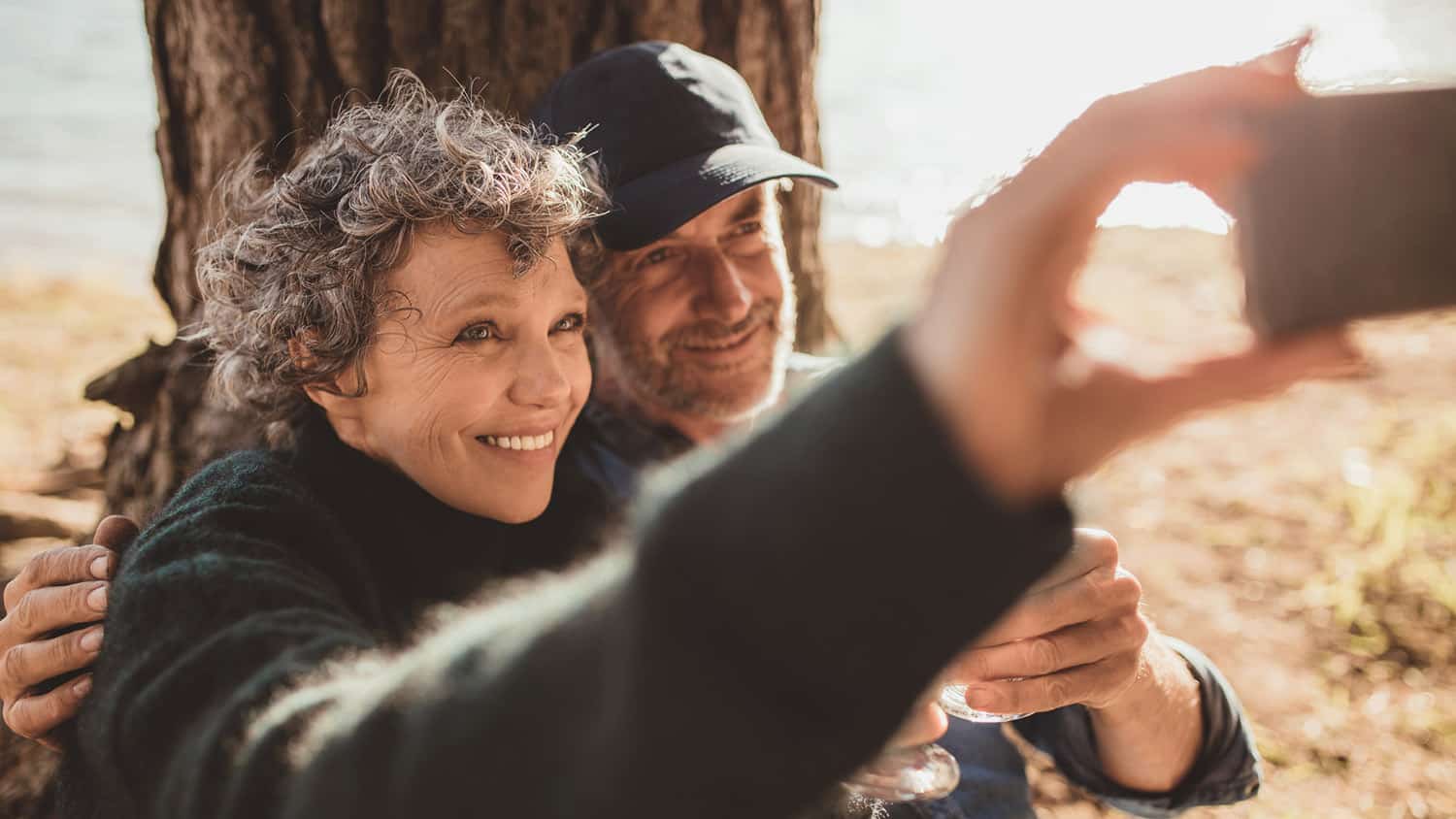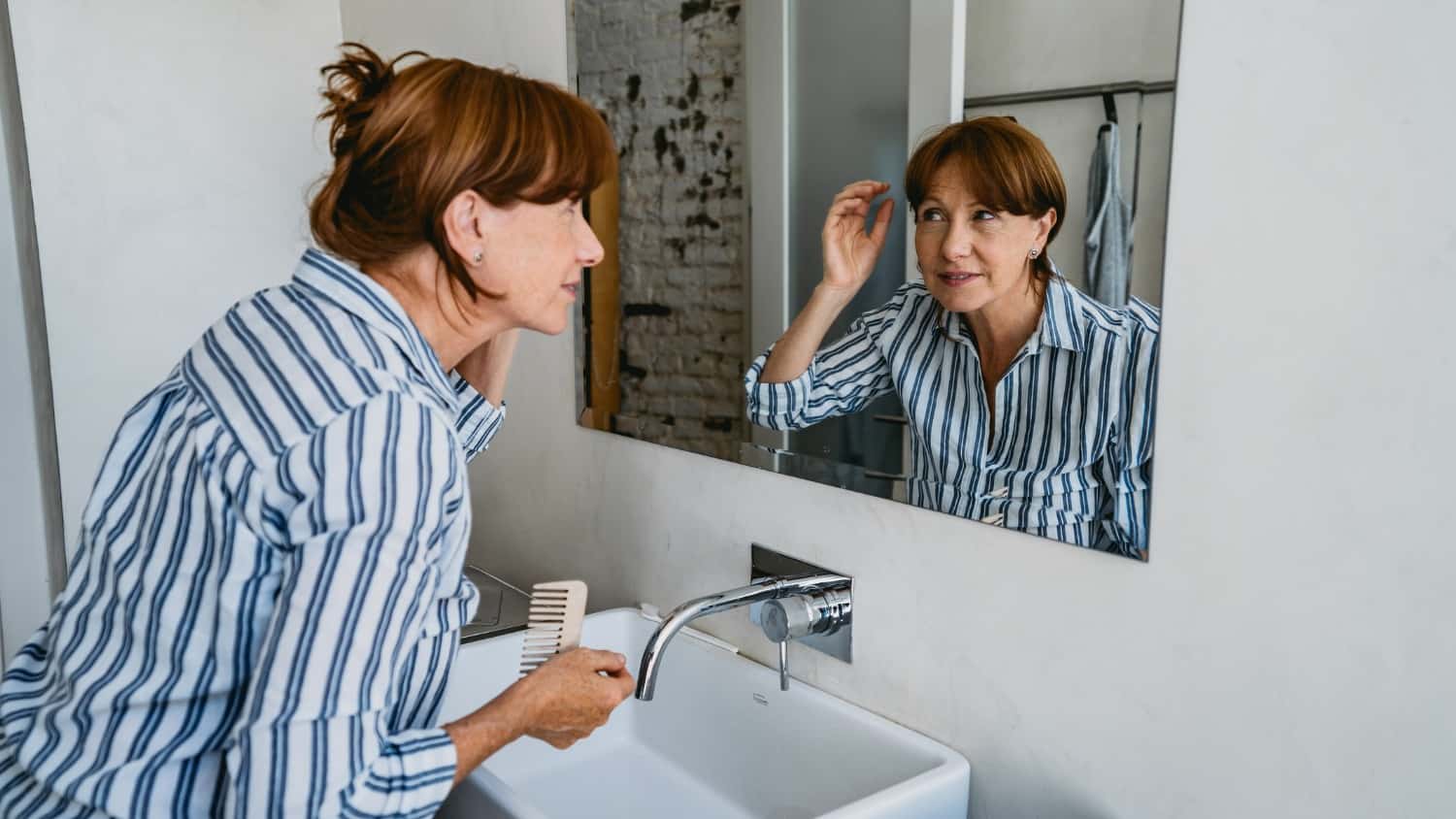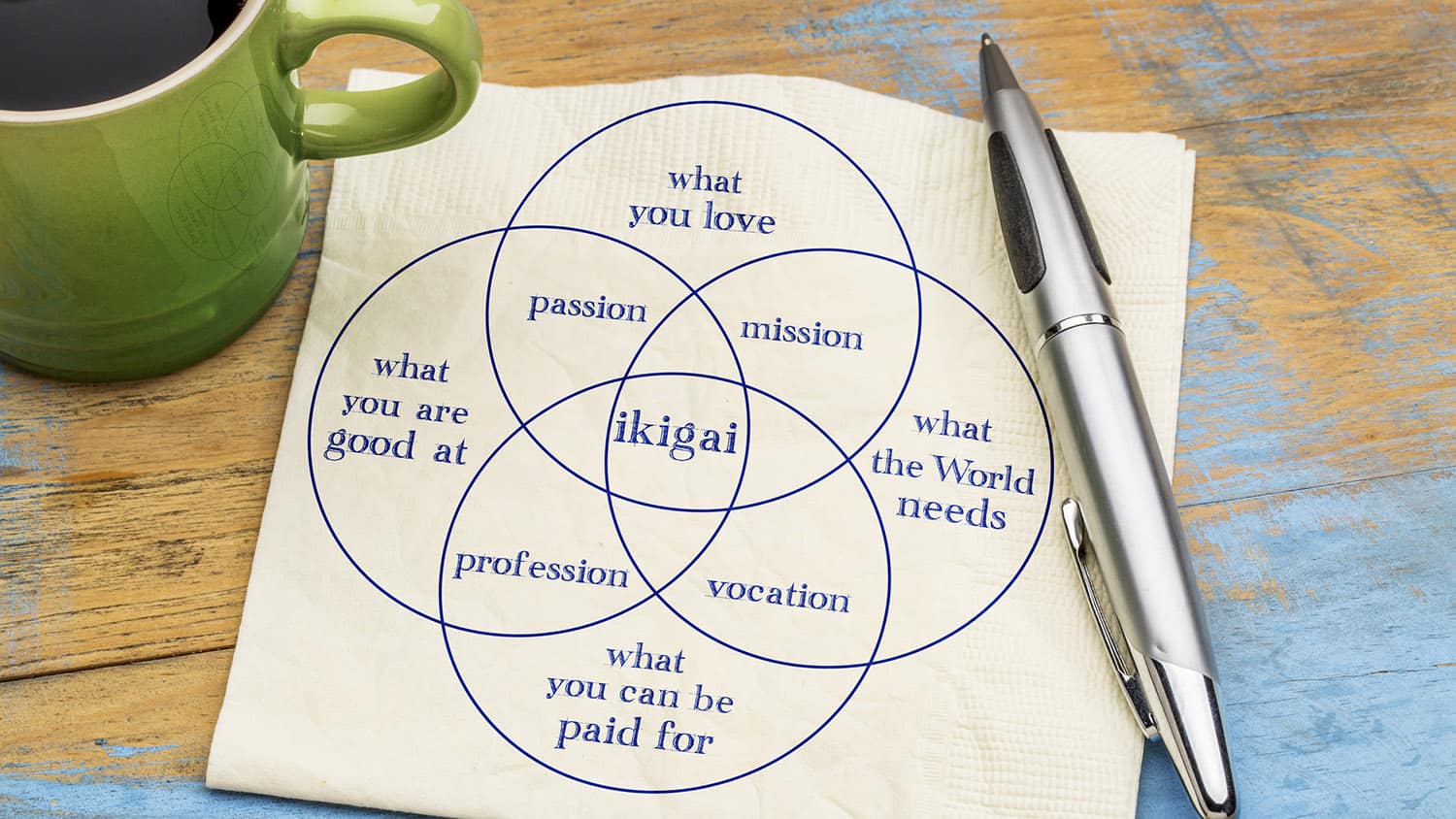
3 Powerful Antidotes to Ageism: Awareness, Integration and Activism
Discrimination is a dirty word. And yet, we encounter it every day in many forms. What does ageism mean in our society? Join us in conversation with ageism activist Ashton Applewhite, who will tell us more about some things we can do toward erasing our own ageist mentality. Enjoy the show!
Margaret Manning:
Today we are going to be inspired by a woman called Ashton Applewhite. Ashton is an author, and her fabulous book “This Chair Rocks” is a manifesto against ageism. She is a very well-known author on this topic, and she has spent a lot of time researching it. She was even named as Next Avenue’s Influential Person of the Year. I’m so happy to have you here today, Ashton. Welcome.
Ashton Applewhite:
Thank you.
Margaret:
Ashton, many women in our community are in their 60’s.
Ashton:
I’m one of them.
Margaret:
Me too. Unfortunately, I don’t think there is one person who hasn’t, in one way or another, been affected by discrimination based on their age. This affects every area of life—from being ignored at a restaurant to being ignored at a job.
I know you have made it your life goal for the past few years to investigate this phenomenon, and I’d like you to give us insight on how we can respond to it. How can we push back? Let’s talk through the three ways that people can deal with ageism.
Ashton:
I think the very first thing we can do is become aware of where our attitude about aging comes from. When I started this project it was oriented toward older people who work. I started looking at longevity, and I was staggered to learn that my understanding of aging was totally wrong.
For example, I thought the odds of ending up in a nursing home were pretty good. But, according to statistics, the percentage of Americans over 65 in nursing homes is 4%, and it’s dropping. I just read that it has gone down to 3%, so odds are that’s not going to happen to me and many people fall into depression.
I always figured older people were depressed because they were old and they were going to die soon. The truth is, older people enjoy better mental health than the young or middle-aged. The longer we live the less people die etc.
The first step toward understanding ageism is to become aware of your own attitude towards your own aging. The minute you start to see ageism in yourself, that’s where all change begins. For example, I feel old. When people say that, you cannot feel any age other than the age you are.
I am 64; this is what 64 looks like on me. I look old, I feel old. Maybe you feel tired, maybe you feel invisible. Maybe you feel lonely. I don’t know about you, but when I was 13 I was really tired, I was miserable, I was lonely. The point is, of course, those are feelings.
We can feel at any point in our lives. The words old and young are perfectly good words. Age is real, and being young is different from being older—we need to acknowledge and accept that. But think about how you say, “I feel young,” which probably means you feel sexy.
Margaret:
Every time we do articles about travel or adventure holidays people say, “Oh, I’m too old to do that now,” or “I’m too old to downsize and move from my house,” or “I’m too old to change cities.”
Ashton:
You may be too lazy, you may be too smart, you may be too experienced, you may be too set in your ways. But that’s another cliché—that older people become conservative. Children are the most conservative beings on earth. They never want you to do anything different.
This has to do with the assumption that any trait or attitude is age based. Of course, it’s obvious that we can’t pogo stick and climb Everest. Physical capacity declines, that’s true, but there is nothing else inevitable.
Margaret:
If you maintain that kind of attitude, then you are reinforcing the stereotype. If you want to be considered an equal, for example in the workplace, you can’t go on thinking, “Oh, I’m too old for this,” because you want to get treated the same as everybody else.
Ashton:
Exactly. So the very first step is to become aware of your attitudes.
Margaret:
When people tell you, “Oh, you don’t look 64,” it’s natural to say, “Oh, well, thank you.” But this way you take it as a compliment rather than just who you are. It’s as if you have become young.
Ashton:
That’s really a problem. It’s very, very hard not to be flattered when someone says you don’t look 64. However, when you accept that complement the inference is that everyone else who is 64 looks crappy. This is hard, but in this case, accepting the complement reinforces the idea that people “X” look a certain way.
Margaret:
And that younger is better.
Ashton:
Yes, that’s right. I’ve come up with one snappy answer in ten years of thinking about this. When someone tells you, “You look great for your age,” say, “You look great for your age, too.” And then let it hang there.
They have to think about why that doesn’t sound like a compliment—because they meant it as a compliment. We change the culture when we turn that first on ourselves and then out into the world in a way that is not aggressive.
If you say, “Thank you very much, but I don’t like it when you say that,” then they just feel defensive. They would most certainly think, “Okay, that lady is a jerk,” and no learning happens. But if you say, “You look good for your age, too,” or, “Why would you call me ‘young lady’?” this will result in some thinking.
It’s important to say it with an absolutely straight face, “Why would you call me that?” It is uncomfortable, but that makes them reflect on their own attitudes and that’s where the change happens.
Margaret:
I think that leads us into the next point in our conversation, about spending time with younger people. I think that integration of people of all ages eliminates age as a factor of intelligence or spirit or whatever.
Ashton:
Integration is a good thing. If we’re around people who don’t look like us, then any stereotype about that people—skin color, age, athleticism, whatever—is eroded. As you meet them—guess what?—you realize they are different from you, but they are also just like you. Prejudice is much harder to maintain this way.
This is a tremendous problem in our society. I don’t know if the situation as bad elsewhere, but I feel like the US is the most age-segregated society in the world. It’s certainly the most youth-centric. Someone pointed out recently that English Pubs are places where all ages come together, and even more and more social classes mix up.
It is really, really important to make and keep friends of all ages. That’s hard to do, I get that. I am constantly suggesting to people that they find a place they like to hang out—whether it’s the pub or a community garden or a library or Starbucks—and reach across an age barrier.
If that seems contrive, think of something you know that someone else might like to learn. Or it could be something you need to know that someone else can teach you. Ideally, as a thought experiment, think of that as age-blunt.
There is a thing here in the corporate community called reverse mentoring, which means that a younger person shows something to an older person. It could be anything—not just about using an iPad— because people learn stuff differently. There could be a 25-year-old that knows more about organic gardening than a 90-year-old or vice versa.
So what is it that you would like to learn or share? Then figure out a community where you can do that. It could be a reading group, or knitting or baking or fishing or political activism. This is important because when we show up at all ages we dismantle ageism in the process. You don’t have to add another ism on. We are living it.
Margaret:
One way I can suggest is meeting groups in meetup.com. It’s really an amazing way to find like-minded people. I was going to tell you about Johnathon Coolly. He has a group called The Age of No Retirement, and we had a little dialogue going on the other day on LinkedIn about ageism in the workplace.
He made a really good point about the need to stop creating senior programs. He said that having a senior program in the workplace actually is not a good thing because it isolates people. Instead of bringing attention to a person’s skill or talent or wisdom, it focuses on age.
Ashton:
A lot of older people don’t want to go hang out at the senior center because of internalized ageism. This is when you absorb these negative values, and they become part of your identity. That’s what’s going on when someone says, “I’m too old.” They have internalized the idea that because they are age “X” they might not be capable of doing such a thing or they might not be welcome there.
I hear people say, “I don’t want to go to the senior center, because it’s full of old people,” as though they would be tarnished by association.
Margaret:
Aging is contagious.
Ashton:
I call it age cooties. In an ideal world though, it would be just fine to say, “I’m old.” The fact is, those words, in our time, have a negative connotation. Intergenerational programs are essential because that’s how everyone breaks down ageism. You could be ageist against younger people, too. It’s any judgement about a person on the basis of age.
If you think, “That younger person is selfish,” or “They don’t want to hear what I have to say,” you are being ageist toward them. But when we are all together doing something, that falls away. When we have multi-generational programs they become self-sustaining. I have a thing in my book about becoming an old-person-in-training.
Margaret:
Yes, that is so good. Tell us more about that really cool suggestion.
Ashton:
It’s a phrase I appropriated from a gerontologist early on in the project. I took me a long hard time to figure out what I was doing, but I encountered the phrase and I thought, “That’s what I’ve become. I’m an old-person-in-training.”
It has to do with embracing the idea that someday you will be an old person. It sounds simple, but ageism feeds on denial, on our reluctance to admit that someday we are going to get old. So, if you can become an old-person-in-training, you can adopt the idea that at some distant point in time, there will be an older version of you
This way you won’t get on the hamster wheel of denial. If you can accomplish it when you are young, you will save yourself a lot of energy that you would otherwise waste on thoughts like, “I can’t get old!” and “I have to do all these things that will make me look younger.”
The best way to do this is by forming an imaginative and empathic link to your future self. It means looking at and listening to the older people around you and envisioning your place among them. And when you see older people doing things you don’t like, you can say, “I would like not to do that,” or if you see strategies that you admire you can file that away.
It’s a tactical and imaginative challenge. It’s also a political act, because all prejudice takes route in what sociologists call “othering,” that is, seeing a group of people as other than you. In a factory, it could be the proverbial Polish factory workers against the Italian factory workers.
An example I love is, stay-at-home moms against moms who work outside the home. We’re pitted against each other instead of saying, “Last I checked we all have vaginas, we all have children and we’re all under paid. Let’s do something about that.” When you become an old-person-in-training you are no longer able to see other people as Other.
Margaret:
Yeah, because of the empathy that is created.
Ashton:
Exactly. You develop empathy. You slip that noose, and you are no longer caught up in the stereotype that older people are some yucky other thing that I have to work as hard as I can to make sure I never go near it. Just the opposite.
Margaret:
Okay, that is a great lead into our next question which is about activism. There are women in our community who are watching us, thinking, “What can I do? This has got to stop. I want to have the energy that Ashton’s got.”
One answer is, you can go and read Ashton’s book “This Chair Rocks,” or go to her website, thischairrocks.com. A section on her site is called Yo, Is This Ageist?, where you can point out your observations of ageism. It’s very useful.
I wanted to mention that you just spoke at the TED Conversance in Vancouver. It’s a conversance where speakers talk about technology, entertainment and design. You, however, had the world stage on the topic of ageism, and I’m sure you had a great call to action. What did you tell them on that stage?
Ashton:
I started out as I usually do: I pointed out the misconceptions that I started out with. I shared the u-curve of happiness—that people are happiest at the beginnings and the ends of their lives. I said that the reason we don’t know these things is because we live in a culture that drowns them out. Unfortunately, I only had ten minutes, so it was pretty abbreviated.
If aging is framed as a problem, then we can be persuaded to buy stuff to fix it, like wrinkle cream and cosmetic surgery. If aging is framed as a disease—if perimenopause, mild cognitive impairment and low T are pathologized and treated as medical conditions—then we can be persuaded to buy stuff to cure it.
Aging is not a disease. It is vulnerability, of course, because stuff breaks down. So illness and ageing are associated, but they are not the same thing. There is nothing age-dependent about the likelihood of any given person coming down with something or recovering from it. We are individuals, and ageing is not a problem to be fixed or a disease to be cured. It is a natural powerful lifelong process that unites us all.
Especially in these dark political times, we need to be vigilant and active on so many fronts. It’s important to remove ageism from the picture and unite at all ages so all those individual efforts become more effective. It’s intuitively obvious.
In the talk about ageism as a global human rights issue I cited some data from Help Age—which is a fantastic organization based in London, with a Help Age international branch—that almost two thirds of the people over 60 and up in the world have trouble accessing health care. Almost three quarters say their income doesn’t meet basic services like water, food and decent shelter.
Is this the world we want our children to inherit? I don’t think so. Longevity is here to stay. The truth is that everyone is old or future-old, and if we don’t put an end to it, ageism will oppress us all. I then asked people to join me, and I am happy to say that everyone who joined jumped to their feet and gave me a standing ovation. That was very exciting, because speaking at TED is terrifying.
Margaret:
As you said, it’s reaching the world and also people of all ages. That’s what is so wonderful about that venue. You have done a lot in just that simple trip of 12 minutes to really engage people.
Ashton:
It was not just old people, that was really gratifying. Young, white men—who are frankly not my core constituency—were saying, “I’m going to forward your talk to everyone.” TED posts it when TED decides to post it, so I don’t know yet when it will be live, but I have This Chair Rocks Facebook page. I’m at This Chair Rocks on Twitter. You’ll put it up on Sixty and Me, so the world will know.
Margaret:
The world will know. It’s funny when people say things to me like, “I have got to tell my mother about your site,” and I go, “Don’t tell just your mother, tell everybody.” I think the first thing about activism is just bringing it into the conversation. Bringing ageism out is the way we can push back.
If you want to learn more about what Ashton’s been working on, check out her website thischairrocks.com. It’s fabulous. Thanks again for being here, Ashton.
What are some examples of ageism you encountered in the past week? Can you think of ways to counter act and show empathy to people of any age? Why, in your opinion, has ageism become so popular? Please join the conversation!
Tags Inspiration






